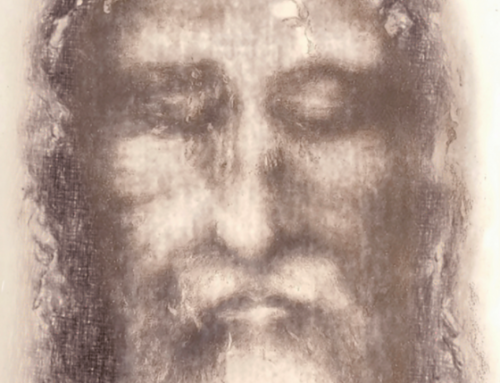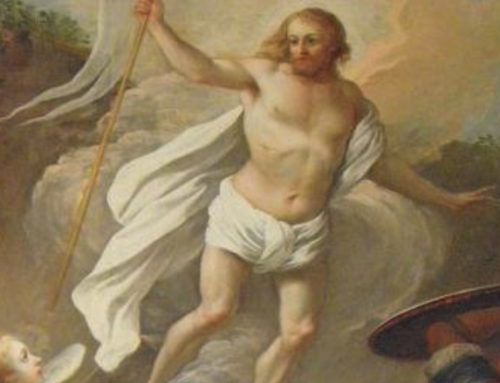When set in motion, panic does not care what is in the way of its mad flight. All must be sacrificed—economy, society, and even worship—in the name of irrational fear. Moreover, it proves difficult to stop. What is missing in our reaction to the coronavirus pandemic is wisdom.
 In the face of the coronavirus crisis that is paralyzing the nation, there need to be policies in place to lead the nation back to health.
In the face of the coronavirus crisis that is paralyzing the nation, there need to be policies in place to lead the nation back to health.
Perhaps the first policy should be that the media should not be policymakers. With this first measure in place, the rest would certainly be much easier.
A case in point was the recent op-ed of The Wall Street Journal writer Peggy Noonan. Her editorial decried the present measures as inadequate and stressed the need to stretch the imagination of what could possibly happen. She says the advice, “don’t panic,” is misdirected. There is a need to panic as a means of exploring all the possible threats that could be out there. America must be prepared for everything—even the unimaginable. Afterward, she concedes, officials can moderate overzealous actions caused by the panic, to return to more reasonable levels of caution.
The Dangers of Panic
However, panic as policy is always dangerous and misdirected. By definition, panic is a sudden unreasoning terror or fear that prompts irrational action such as flight. Panic unleashes a series of actions that are hard to contain once set in motion. It creates a competition among officials to each outdo the other in zeal for action lest they be faulted for inaction.
When panic rules, every possible threat must be considered even if only remotely probable. Every contact must be suspected. Every action must be monitored. All must be locked down because of what might happen. Such a social order thus organized is not a society but a prison. Life becomes impossible under such a regime. No state can long function in a situation in which it must be prepared for all possible threats that can be imagined.
Playing with Numbers
Panic policy relies on a jumble of numbers and statistics thrown out into the public forum to prove anything and everything. Panic plays with numbers and makes wild projections about what could happen. It does not wait for data to confirm conclusions but takes whatever is available and makes its own conjectures.
Any number, even relatively small numbers, can be inflated and sensationalized beyond the reality. “Spiraling” cases may only involve dozens of new illnesses. Indeed, any death becomes unbearable when fear takes over.
Epidemiologists like Dr. John Ioannidis of Stanford University complains the coronavirus data thus far collected is “utterly unreliable.” Thus, important decisions are being made in the dark that could have devastating consequences for the nation.
A Destructive Fear
The most dangerous threat of panic is its destructive power. When set in motion, panic does not care what is in the way of its mad flight. All must be sacrificed—economy, society, and even worship—in the name of irrational fear. Moreover, it proves difficult to stop.
Thus, panic can take social isolation to the extreme of destroying the very society which it claims to be saving through means that are not proven to be effective. No one denies the need to take measures to limit the spread of the virus. However, these measures must be based on verifiable data and not assumptions.
This danger is echoing all across the nation as business and community leaders express their concerns. Indeed, the business sector complains that the grinding of the economy to a halt will have disastrous long-term effects, which will cause enormous suffering for millions of Americans. The health risks that might be avoided by the lockdown can give rise to other risks in other areas of stress and psychological health. Many fear that the strain on government resources will prove too great to prevent a collapse.
When the panic of not reacting enough takes hold, nothing is off the table. The situation is aggravated by the political posturing of politicians who use the crisis to their own ends.
Missing Wisdom
When panic informs policy, it becomes impossible to make proper decisions. It is not the case to argue here about which specific measures should or should not be implemented. The coronavirus crisis is a serious threat that must be confronted. No one denies it must involve hardships.
However, what is missing is wisdom. Many, especially the media, are not presenting the whole picture. Each party becomes unnerved by a facet, statistic, or episode of the problem.
Wisdom is the contrary of panic. It is calm and reflective. Wisdom is impartial and objective. It deals with reality as it is and not as one might imagine it to be.
German philosopher Josef Pieper once defined wisdom as knowing the highest cause of things. He writes that “To know the highest cause,” then, does not mean to know the cause of some particular thing, but to know the cause of everything and of all things: it means to know the ‘whither’ and the ‘whence,’ the origin and the end, the plan and the structure, the frame work and the meaning of reality.”
What America Needs
This wisdom must be found everywhere and at all levels.
America needs calm voices that reflect a knowledge of the whole framework of the crisis. They can then pronounce judgments with a wisdom that will not bring down the whole system or a local situation.
America needs wise words that can be heard and will rise above the din of the panicky crowds and media. Such words will be impartial and objective, providing sound counsel in these times of trial.
Above all, America needs prayerful hearts to seek after the source of Eternal Wisdom found in the Incarnate Word. Such souls have the discernment to see that natural solutions will not be enough in this crisis. America must have recourse to supernatural help if there is to be a return to order.
The Imaginative Conservative applies the principle of appreciation to the discussion of culture and politics—we approach dialogue with magnanimity rather than with mere civility. Will you help us remain a refreshing oasis in the increasingly contentious arena of modern discourse? Please consider donating now.
The featured image is “Panic in Ypres, April, 1915” and is in the public domain, courtesy of Wikimedia Commons.







Well thought out article. I like John Horvat’s writings the more I read!
I Chronicles 7:13 tells us the source of pestilence, and the next verse reveals the most essential response.
I appreciate your wise advice. We need to remember that one of the first virtues to disappear in a society which is experiencing a loss of its historical spirituality, particularly in the younger generations, among the first casualties is wisdom. Let’s take this opportunity of isolation to give thought and thanks to God.
Well reasoned and well said. Excellent job. Thanks.